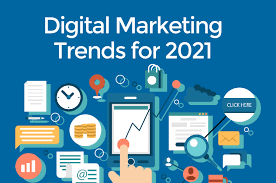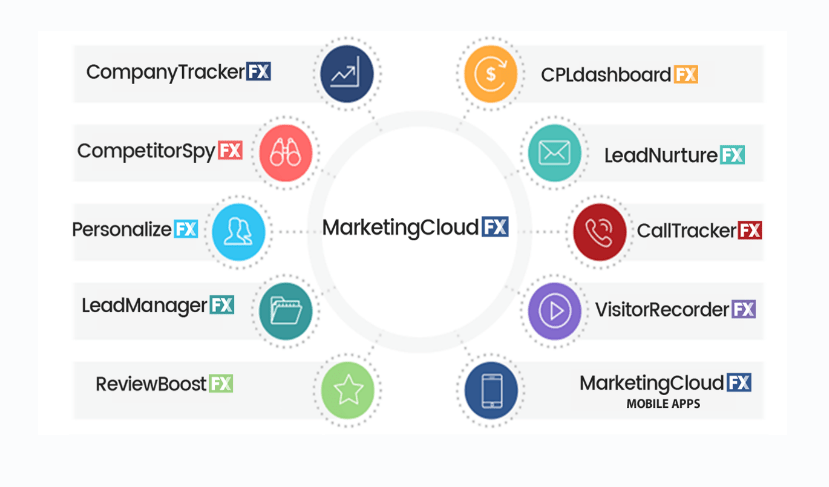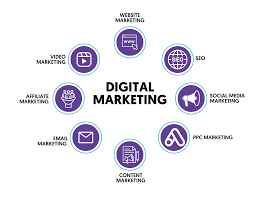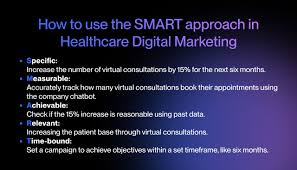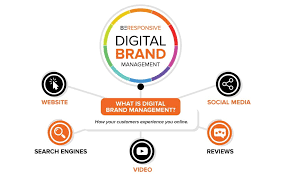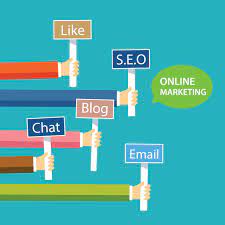The Evolution of Digital Marketing in 2021
In the fast-paced world of digital marketing, staying ahead of trends is crucial for success. As we navigate through 2021, several key trends have emerged that are shaping the landscape of digital marketing.
Personalisation is Key
Personalisation has become a cornerstone of effective digital marketing strategies. In 2021, consumers expect tailored experiences that resonate with their needs and preferences. Brands that can deliver personalised content and messaging are more likely to engage and convert their target audience.
Video Content Dominance
Video content continues to reign supreme in the digital marketing realm. With the rise of platforms like TikTok and Instagram Reels, short-form video content has gained popularity among audiences. Brands are leveraging video to tell compelling stories, showcase products, and engage with customers in a more interactive way.
SEO and Voice Search Optimization
Search engine optimisation (SEO) remains a critical component of any digital marketing strategy. In 2021, the focus has shifted towards voice search optimisation as more consumers use voice assistants like Siri and Alexa to find information online. Brands are adapting their SEO tactics to align with voice search queries and provide relevant answers.
Data Privacy and Compliance
With increasing concerns about data privacy and security, brands are prioritising compliance with regulations such as GDPR and CCPA. Building trust with consumers by safeguarding their data is essential for maintaining brand reputation and credibility in the digital space.
The Rise of Influencer Marketing
Influencer marketing continues to be a powerful tool for reaching target audiences authentically. Micro-influencers, in particular, have gained traction for their ability to connect with niche communities and drive engagement. Brands are collaborating with influencers to create authentic content that resonates with their followers.
Conclusion
As we progress through 2021, these trends will continue to shape the landscape of digital marketing. By embracing personalisation, leveraging video content, optimising for voice search, prioritising data privacy, and harnessing the power of influencer marketing, brands can stay competitive in an ever-evolving digital world.
Top 5 Advantages of Digital Marketing in 2021: Expanding Reach and Engagement
Challenges in Digital Marketing 2021: Navigating Overload, Fatigue, Privacy, Algorithms, Competition, and Measurement
- 1. Information Overload
- 2. Ad Fatigue
- 3. Privacy Concerns
- 4. Algorithm Changes
- 5. Competition Intensity
- 6. Measurement Complexity
Increased Reach
In 2021, one significant advantage of digital marketing is the increased reach it offers to businesses. Through digital channels, companies can transcend geographical limitations and connect with a global audience. This expanded reach enables businesses to engage with diverse demographics and target markets, fostering brand awareness and driving growth opportunities on a global scale. By leveraging the power of digital marketing, businesses can effectively reach and resonate with audiences worldwide, breaking down traditional barriers to entry into new markets.
Targeted Advertising
In 2021, one significant advantage of digital marketing is the ability to utilise targeted advertising. By leveraging digital channels, businesses can tailor their campaigns to reach specific demographics and interests with precision. This targeted approach not only enhances the relevance of the content delivered to audiences but also increases the overall effectiveness of marketing efforts by ensuring that messages resonate with the right people at the right time.
Cost-Effective
In the realm of digital marketing in 2021, one significant advantage lies in its cost-effectiveness compared to traditional marketing approaches. Digital marketing strategies typically require lower investments while offering a higher return on investment (ROI). This financial efficiency allows businesses of all sizes to reach their target audiences effectively without breaking the bank, making digital marketing a compelling choice for maximising marketing budgets and achieving tangible results.
Real-Time Analytics
One significant advantage of digital marketing in 2021 is the availability of real-time analytics. Through digital platforms, businesses can access immediate data and analytics that offer insights into campaign performance. This real-time information empowers businesses to make timely and informed decisions, adjust strategies on the fly, and optimise their marketing efforts for maximum effectiveness. By leveraging real-time analytics, businesses can stay agile and responsive in a dynamic digital landscape, ultimately driving better results and ROI for their marketing initiatives.
Enhanced Engagement
In 2021, one significant advantage of digital marketing is the enhanced engagement it offers. By utilising social media platforms and interactive content, brands can establish meaningful connections with their target audience. Through engaging posts, interactive campaigns, and real-time interactions, digital marketing facilitates two-way communication that fosters relationships and builds brand loyalty. This level of engagement not only helps brands to understand their audience better but also creates a sense of community and involvement that can lead to increased customer retention and advocacy.
1. Information Overload
In 2021, one significant con of digital marketing is the issue of information overload. The sheer volume of digital marketing content available can overwhelm consumers and make it difficult for brands to differentiate themselves in a crowded online space. With so much information competing for attention, capturing and maintaining audience engagement becomes a formidable challenge for businesses looking to make an impact in the digital realm.
2. Ad Fatigue
In 2021, one notable con of digital marketing is the phenomenon of ad fatigue. With consumers being inundated with traditional advertising methods across various digital platforms, there is a growing sense of immunity towards these ads. This saturation has resulted in reduced engagement levels as audiences become desensitised to repetitive and intrusive advertising messages. As a result, brands are challenged to find innovative ways to capture and maintain consumer attention amidst the noise of digital advertising.
3. Privacy Concerns
In 2021, one significant con of digital marketing is the heightened privacy concerns among consumers. With increased awareness about data privacy issues, individuals have become more cautious when it comes to sharing personal information with brands online. This shift in consumer behaviour has posed a challenge for marketers who rely on collecting and utilising customer data to tailor their campaigns effectively. As privacy regulations continue to evolve, businesses must navigate this landscape carefully to build trust with their audience while respecting their privacy rights.
4. Algorithm Changes
In 2021, one significant drawback of digital marketing is the constant changes to search engine algorithms and social media platforms. These algorithm updates have the potential to significantly affect the visibility and reach of digital marketing campaigns. Marketers must adapt quickly to these changes to ensure their strategies remain effective and their content reaches the intended audience amidst evolving algorithmic preferences.
5. Competition Intensity
In 2021, one significant challenge facing businesses in the realm of digital marketing is the intense competition that characterises the online landscape. The sheer volume of companies vying for consumer attention has created a scenario where smaller businesses struggle to compete with larger corporations in terms of online visibility. This heightened competition poses a barrier for smaller enterprises looking to establish a strong digital presence and reach their target audience effectively.
6. Measurement Complexity
In 2021, one significant drawback of digital marketing is the complexity of measurement. Tracking and evaluating the impact of digital marketing campaigns across various channels can present challenges in determining return on investment (ROI). The intricate nature of monitoring performance metrics and attributing conversions to specific marketing activities can be time-consuming and may hinder marketers from accurately assessing the effectiveness of their strategies. This measurement complexity poses a conundrum for businesses seeking clear insights into the success of their digital marketing endeavours.

